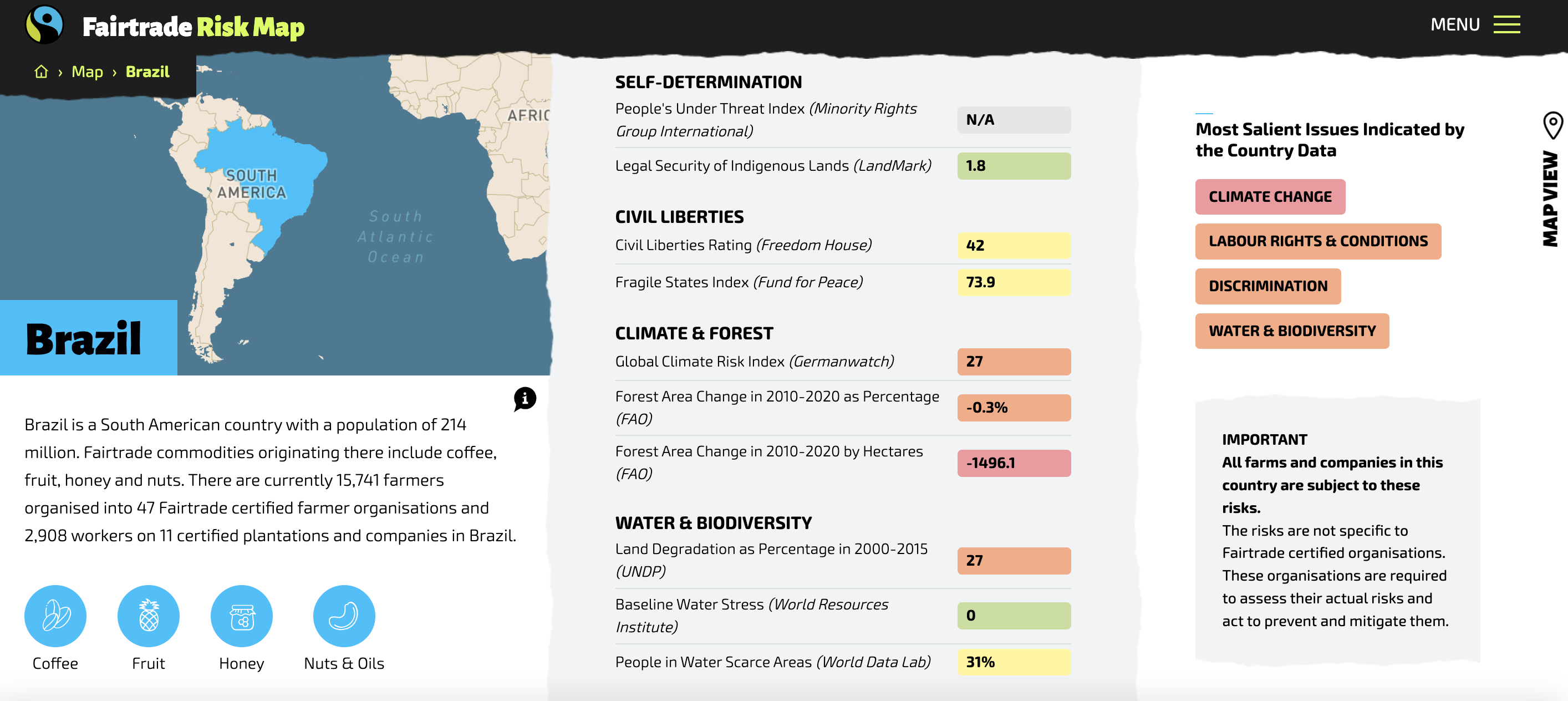
Fairtrade launches a new risk map to identify and visualize the greatest human rights and environmental risks in the sectors where it is active.
Currently, the risk map covers coffee, cocoa, bananas, wine grapes and honey, as well as the most common countries of origin of these products.
The catalogued risks are relevant for the products and their associated growing regions for any supply chains, not only for Fairtrade, so that anyone, from farmers and worker organizations to brands and NGOs, can hone in on salient risks to communities and in supply chains. This comes as companies face growing legal obligations to carry out such risk assessments and to prevent, mitigate and remediate the greatest risks in their supply chains.
A product of Fairtrade’s ongoing risk and impact assessment work, the map adds value by incorporating rightsholders’ input collected through dialogue and participatory processes: Fairtrade spent several months working with farmer co-operatives, workers and plantation management, Fairtrade staff from six continents, and external experts to develop the map.
The website also includes detailed information on specific risk issues identified in the covered commodities, such as child labour, gender rights and living income, as well as environmental risks related to climate change, water, and biodiversity.
Marike de Peña, president of the Fairtrade Producer Network for Latin America and the Caribbean CLAC, said, “The risk map can facilitate a transparent dialogue between supply chain actors and help companies in building effective responses to address the greatest risks, avoiding further harm to farming communities and the planet.”
Fairtrade encourages companies to not ignore risks, but rather to use the new map as an opportunity to start a dialogue with farmers and workers and take concrete steps to make global supply chains more sustainable. Many risks are deeply rooted in poverty, inequality and exploitation, so it takes the collective effort of companies, farmers, workers, governments and civil society to effectively tackle them in the long run. This is why, although certification can encourage certain standards to be upheld, the use of certification should never be the only measure a company takes to prevent, mitigate and remediate the greatest risks in their supply chains.
“Fairtrade has been a pioneer in advancing human rights in business for more than 30 years,” said Fairtrade’s business and human rights director Tytti Nahi. “Due diligence must not be just about internal processes and requirements to business partners, but also about dialogue, collaboration and changing one’s own practices, to improve people’s lives and protect the environment.”
Print this page
